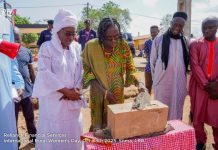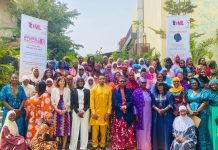By Ndey Sowe
One of the most restricted topics in The Gambia is to discuss the sex and sexual life of people. It is considered taboo and abominable to involve young people, particularly girls in such conversations. But this has left an adverse effect on the reproductive health of women and girls in particular as they grow with consequential health complications that they have developed from harmful practices such as Female Genital Mutilations (FGM) and lack of sexual education.
“I had a very bad experience because the five people that I went with all went through hell. Myself, I was constantly losing blood. I can still clearly remember it despite that it has been a long time but that is something I will never forget,” said Fatima Jarju, a survivor of FGM practice.
Her victimisation came after her family had succumbed to the advice of a neighbour who persuaded them to allow Fatima and her younger sister to be taken through the process.
“I don’t think my parents ever had the intention of cutting us but then there was a particular old woman who lived beside us who was taking her grandchildren, so she approached my mother and my dad and told her about all the processes.”
Fatima continues: “I was taken together with my younger sister and the old woman told us they would get us bananas by then I was young, so that was how it happened. Before we realised it, by then we found ourselves in a small bush and we were cut by one old woman who was well-known from where I live.
For the months to come, Fatima continued to face complications in getting herself healed, rendering her an unbearable trauma.
“I could remember, they pounded leaves and put it on top of our wounds, which smells very bad,” she said.
As a living survivor, she strongly holds the view that FGM is real, traumatic, and painful. Fatima has since taken an activist role to sensitise women against taking their female children through the harmful process.
Another survivor is a 19-year-old girl who prefers anonymity. She said she developed complications as she was unable to pass urine even though her bladder was filled-up with urine because the opening of her sexual organ was cut off. Her stomach looked like she was pregnant due to the heaviness of the bladder.
“The sad part was that the person doing the cut used a razor blade,” she recalled.
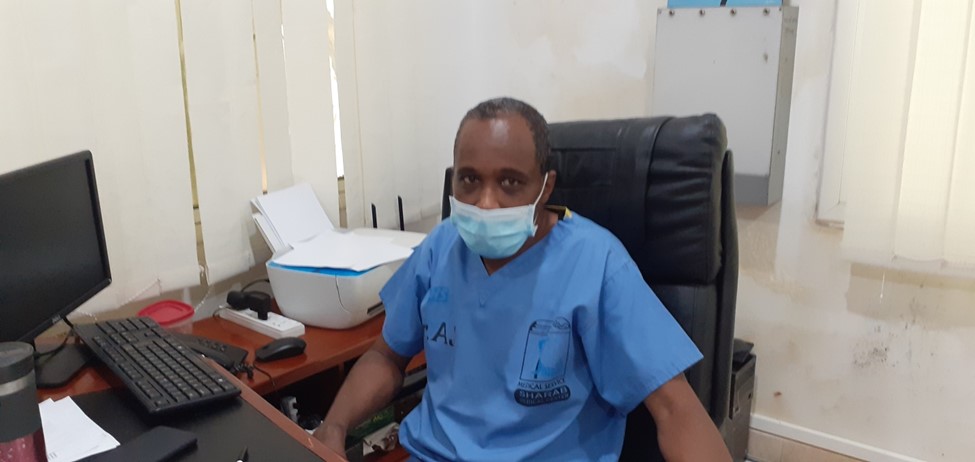
FGM Has No Medical Benefit
A medical doctor, Abubacarr Jah, said most of these cuttings are done in an un-conducive environment which can cause a lot of infections such as HIV among others.
“More than two hundred million women alive today are living with FGM in Africa and the Middle East. Each year about more than three million people undergo or are at risk of undergoing FGM, so we have a lot of work to do,” he said.
Dr. Jah, who is also the CEO of Sharab Medical Center, said “FGM has no medical use at all or benefit.” He said it has lots of bad side effects which include, severe bleeding, life-threatening infections like tetanus, problems in urinating, and childbirth complications.
“I want to say FGM has no medical benefit, no religious basis, it is a serious crime and dishonorable to human life, it should be stopped,” he said, adding that in most cases the tools used for cutting are not clean.
Dr. Jah said it was and is still difficult to talk about FGM and issues dealing with the genitals or sexual reproductive issues in Gambian societies due to cultural position.
“The male and females have things that look alike and in the female genital organ, there is something called the clitoris which represents the phallus in males, and this is where a lot of de-sensation for sexual gratification takes place, and just underneath it, is the opening for the urinary tract. When there is a cut, you might also affect the urinary tract,” he said.
He said in some cases, it is part of the clitoris that is cut, and in other cases, it is the labia minora (which is the minor lip) that is cut. He said type 3 is called infibulation (This is the ritual removal of the external female genitalia and the suturing of the vulva). He said the idea of performing infibulation is to preserve the virginity of girls until they are married, and they have to undergo another procedure where it will be cut again and reopen, which is a painful experience when having sex.
“This procedure is done without any anaesthesia and any pain killers and it has to be reopened again, and when it is reopened sometimes it is not to a very good extent and childbirth becomes a big problem,” he said.
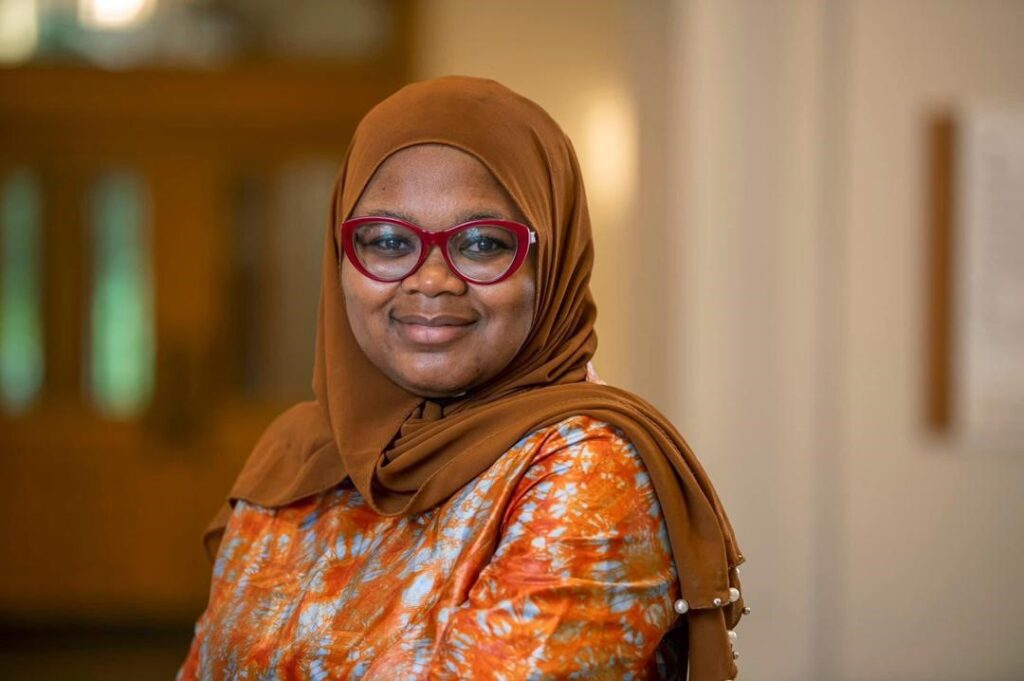
FGM aside, lack of sexual education is devastating
Back in the days, The Gambia used to have a subject in the Lower Basic School System called Population and Family Life Education (POP/FLE). The subject educated students on understanding sexual life and promoting safe sex. It drew a huge criticism that it was encouraging and introducing teenagers in schools to sexual practices. It is no longer happening, possibly due to criticism.
However, activists want to see the reintroduction of the course in school to help young people understand and better protect themselves and avoid getting unwanted pregnancies. One organization that is leading this conversation is Think Young Women (TYW), and their National Coordinator, Musu Bakoto Sawo told Foroyaa that the narratives they see daily when it comes to issues around sexual and reproductive health particularly to young women need the involvement of young men and women in changing the narratives.
She said women should be allowed to have autonomy and control over their bodies to make informed decisions and choices over their reproductive health more so when it comes to childbirth or child spacing amongst other things.
“As an organization, we have been doing this work since 2010, and since then we have been having conversations with women and young girls about sexual and reproductive health. We have a girl’s mentorship programme and one of the thematic areas we teach girls about is reproductive health, and we have a good system of ensuring that we raise more awareness on issues around menstrual health and hygiene,” she said.
“We’ve had conversations with women about their autonomy and control over their bodies in terms of making decisions about when they want to have a child. We believe that conversations around comprehensive sexuality education should be a priority.”
According to her, they have had a discussion with the Ministry of Basic and Secondary Education (MoBSE) to reintroduce the curriculum that deals with comprehensive sexuality education as that make girls understand their body, control it and they will shape the change of narrative around sexual and reproductive health.
But Musu is against criticism against sexual education.
“We should not hide behind these ‘Taboos’ of not talking about issues relating to sex. We should give them accurate information that they have other choices if they are not going to abstain.
“It is the responsibility of the society to teach them so that we would reduce the number of unwanted teenage pregnancies or girls’ pregnancies in particular and we would be able to ensure that we give them enough information to be able to protect themselves,” she said.
Conservative Gambians thought that POP/FLE introduced and encouraged teenage students to have sex by creating lessons of safe sex through the use of a condom. But Musu’s organisation is not relenting.
“Advocacy is a key element in the work that we do, and part of which is community sensitization and education. We know that it is an uncomfortable topic for most people but it is only by having conversations we would be able to break the barriers.
“We should be able to teach our boys and girls and give them accurate information. When they have accurate information, the decision will be theirs to consume that knowledge or new-found information that they have received,” she told Foroyaa.
She emphasized that issues of reproductive health are not a privilege but human rights and the State should promote these rights and let the boys and girls ought to know that they can go to facilities to seek support if they have any questions on sexual and reproductive health issues.
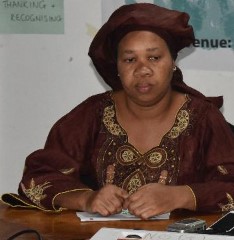
Photo: Halimatou Jallow
The Programme Officer of the Network against Gender-Based Violence, Halimatou Jallow, said sexual and reproductive health rights start from the grassroots by teaching children at home.
“We are parents or custodians of children, and we should tell them to know their body parts and what their functions are, and what is expected to do and as they grow, they should be told what to expect,” she emphasised.
She added that children need to be taught how to voice out their opinions and how to negotiate sex as they grow older, adding they need to report when they are violated.
Women’s Act 2010
The Women’s Act 2010 was signed into law by former President Jammeh on 28 May 2010. It is intended to provide for the protection of women’s rights in addition to the rights guaranteed under Chapter IV of the Constitution.
Right to health and healthcare
Section 29 of the Women’s Act recognises the right of every woman to enjoy the highest level of physical, mental and social well-being, health care and health care services including family planning. Section 29 (3) further gives women the right to determine processes concerning reproduction in their body with international best practices.
However, the provision is broadly framed and contains little guidance on the specific nature of state obligations contained therein, or how these are meant to better protect women.
Elimination of discrimination in reproduction health rights and services
Section 30 of the Women’s Act protects women against discrimination in reproductive health rights and services and provides for the right to medical abortion where the pregnancy endangers the life of the mother or the foetus. This is limited in scope contrary to article 14(2)(c) of the Protocol which provides for medical abortion in cases of assault, rape and incest. This provision has a direct relation with the effects of GBV on victims particularly women.
Banning of Female Genital Mutilation (FGM)
In December 2015, the Women’s (Amendment) Bill 2015 was by the National Assembly to prohibit female circumcision. The amendment addresses one of the key deficiencies of the Women’s Act 2010 which was the absence of a provision on eliminating harmful traditional practices. The Amendment Act added sections 32A and 32B to the Women’s Act.
The Act uses the term ‘circumcision’ instead of ‘mutilation’. However, in defining circumcision, it lists female genital mutilation. Section 32A makes it an offence for any person to engage in female circumcision and whoever contravenes it is liable on conviction to imprisonment for a term of three years or a fine of fifty thousand dalasis (approximately $1250) or both. The Act also stipulates a life sentence in prison when circumcision results in death.
The Act also addresses those who commission the procedure in section 32B(1). It states that a person who requests incites or promotes female circumcision by providing tools or by any other means commits an offence and is liable on conviction to imprisonment for a term of three years or a fine of fifty thousand Dalasis or both.’ In addition, a fine of ten thousand dalasis (approximately $250) as provided in section 32B(2) of the Act is levied against anyone knowing about the practice and failing to report it.
















